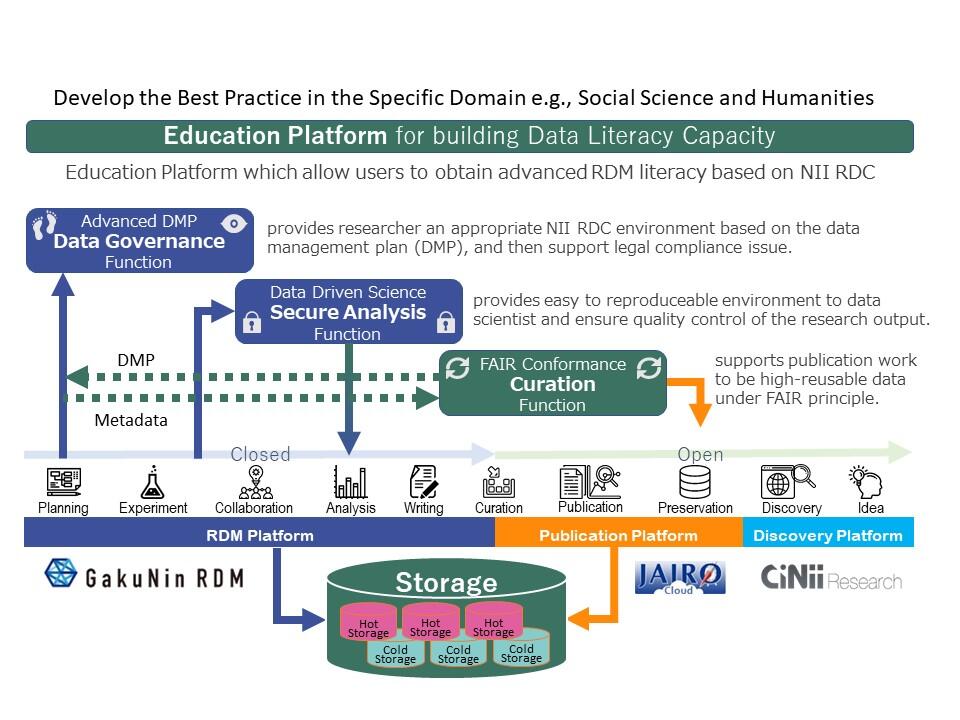Promote the Use in Humanities and Social Sciences
In recent years, it has become increasingly important to clarify the rights of digital content and to protect privacy information while open access to research data and papers is encouraged. In the humanities and social sciences, where human activities are the subject matter, there are many research contents that are difficult to be made public due to licensing, confidentiality and privacy information.
We are exploring ways to handle such content that is difficult to publish and developing a function to share such research content using the NII Research Data Cloud.
Use Research Data in Humanities and Social Sciences
To make use of research data in the humanities and social sciences, users need to find out which institutions publish research data and search for research data that meets their needs in each institution's repository. We have developed the Japan Data Catalog for the Humanities and Social Sciences (JDCat)![]() as an environment for centrally searching research data from various institutions, under the commission of the Program for Constructing Data Infrastructure for the Humanities and Social Sciences.
as an environment for centrally searching research data from various institutions, under the commission of the Program for Constructing Data Infrastructure for the Humanities and Social Sciences.
JDCat was made available to the public from November 2021, following a pilot release in July 2021. It allows you to search for research data from Japanese institutions in the humanities and social sciences fields using advanced and faceted searches. Some of the data in JDCat is linked to Code Package Function, so you can immediately analyze data retrieved in JDCat using R or Python.
Provide Research Content Only to Users Who Meet the Requirements
Some research data contain content that is not suitable for sharing with the public. In the medical and social sciences, research data is not made publicly accessible to everyone but only to those who meet the requirements to protect the privacy of research subjects. This type of research content provision is called restricted access, and about half of the world's research data repositories support this type of content provision.
We have developed a restricted access service for various academic fields using our publishing platform and are operating it on a trial basis via JGSSDDS![]() . This function allows you to set conditions for data use, to provide data only to those who agree to the conditions, or to provide research data containing confidential or privacy information only to those who meet the requirements.
. This function allows you to set conditions for data use, to provide data only to those who agree to the conditions, or to provide research data containing confidential or privacy information only to those who meet the requirements.
Provide Evidence Data for Paper Only to Reviewers
In recent years, an increasing number of journals have made it a condition of submission to provide reviewers with the evidence data used in writing of the paper through a repository. It is, however, difficult to publish evidence data that is under review; so, a mechanism is required to allow only certain anonymous users, such as reviewers, to access content that is not publicly available.
For this service, we are developing a function to provide reviewers with evidence data for papers using our publishing platform. This function allows those who register evidence data to generate a secret URL link to the evidence data in a private status from research data registration page. By providing this secret URL link to reviewers, it allows the reviewers to obtain the evidence data from the repository.





